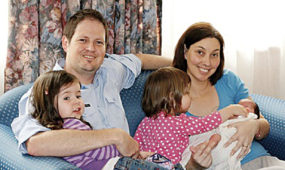The abortion debate we need to have
Opinion
It is 50 years since the SA Parliament debated and passed legislation relating to abortion. A lot has changed since then and the Attorney General Vickie Chapman has decided it’s time to ‘modernise’ the legislation.

Let me say from the outset that I have no issue with enshrining in law the notion that a woman should not be subject to criminal prosecution for terminating a pregnancy, a provision in the current law that to my knowledge has never been applied.
I do object, however, to the proposition that it should be treated ‘just like any other health issue’, as Ms Chapman said in her media release announcing the Bill.
Advertisement
Becoming pregnant and bearing a child is the most natural and most beautiful thing in the world. It only becomes a ‘health issue’ when there are complications for the baby or the mother, or when the pregnancy is ended intentionally either by medication or surgical procedure.
And it is not like ‘any other health issue’ because it involves the life of an unborn child.
That makes it very different to treating a sick person for a particular illness or disease.
Over the past few decades we have experienced massive advances in medical technology, and a major shift in what constitutes a family. These are reasons to relook at how we can support a woman having a baby, not how she can terminate the pregnancy more easily.
The quality of medical imaging now available shows us very early on in the pregnancy that there is a viable, human being in the womb and by 23 weeks the level of neo-natal care is such that the baby has a strong chance of survival.
Advertisement
Similarly, a child with some types of disability, such as Down’s syndrome, has a much better prospect of living an independent and long life (not to mention the love they bring into the world).
The BBC reported last week that 90 per cent of women whose unborn babies are diagnosed with Down’s syndrome choose to have an abortion. They cited cases where women in the UK had been encouraged on numerous occasions to have a termination for this reason, and sometimes late into the pregnancy.
Just because we have the ability to test and screen for abnormalities doesn’t mean we should seek perfection in humanity. That is akin to a master race ideology. Rather we should be making sure parents have all the necessary information and support available to them during and after the pregnancy.
From a social perspective, young girls and single women who give birth are no longer ostracised or discriminated against. In most cases they have access to ongoing study or training, child care and financial support. That’s not to say their lives are easy, but it’s a far cry from 50 years ago when it took a great deal of courage for an unmarried woman to have a child.
Related Story
 People
People
Lilah’s legacy a reminder of the sanctity of life
Now we have same sex couples accessing IVF, we have surrogate mothers and three parent families, we have laws to protect frozen embryos – so much energy put into ensuring everyone has the right to a family. And on the other hand, we have so much energy being put into a law that takes away the right of an unborn child to have a life.
Yes it’s time for us as a community to debate outdated abortion laws, but let’s make sure it’s well-informed. Let’s make sure it encompasses the views of a generation of women, and men, who have never really thought about the main reason this law came into being in the first place, that is, to prevent ‘backyard’ abortions.
While it may not be the intention of the proponents of the new bill, the fact that it would be possible to have a legal abortion up until full term, provided two doctors consider it ‘medically appropriate’, is at odds with the acknowledgement that by 22 weeks and six days the baby has every chance of being born alive.
The story of Andrea Bishop demonstrates how difficult it can be for a woman to choose not to abort when a purely medical perspective is taken.
Yes women deserve to have autonomy and the freedom to make choices but those choices need to be made in the context of a society that gives the utmost priority to protecting the life of all its citizens, including the unborn.








Comments
Show comments Hide comments